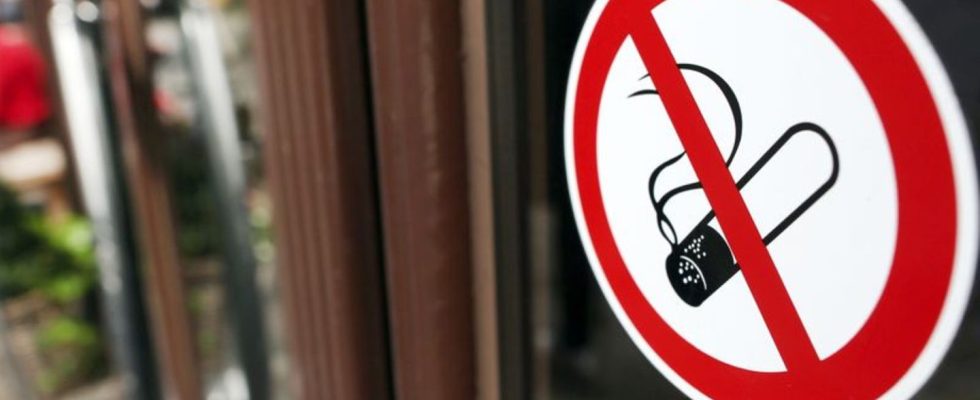Health
British government tackles cigarette ban
A controversial smoking ban is being discussed in Great Britain. Prime Minister Sunak’s plan is also leading to internal party disputes. photo
© Martin Gerten/dpa
Ironically, the party of cigar lover Winston Churchill wants to abolish smoking. But there is also resistance to the plan to ban future generations from buying cigarettes.
Former British Prime Minister Winston Churchill was seen with a cigar. And the English top model Kate Moss likes to have a cigarette. Smoking was long taken for granted in Great Britain. But the government in London wants to better protect society and is now taking a far-reaching step. She wants to legally ban it for future generations to buy cigarettes. She can hope for a majority in parliament.
“The truth is: there is no safe level of tobacco use. It is extremely harmful and that is why we are taking this important step today to protect the next generation,” Health Minister Victoria Atkins told a planned debate on Tuesday House of Commons with.
How the sales ban should work
The conservative government wants to make the legal purchase of cigarettes impossible in the long term. A law stipulates that the minimum age for purchasing should be increased by one year every year from the current 18 years. Prime Minister Rishi Sunak’s goal is that no one who turns 15 or younger this year will ever be able to legally purchase cigarettes. Smoking itself should not be banned – adults who smoke today can still buy cigarettes – but it should be made almost impossible for future generations.
According to government figures, the smoking rate in the 14 to 30 year old group could be close to zero by 2040. Atkins argues the law would save thousands of lives, reduce pressure on the NHS and increase the UK’s productivity. In Great Britain, tens of thousands of people die every year as a result of smoking.
British Prime Minister also faces resistance
But Sunak faces fierce resistance from within his own ranks. His immediate predecessor Liz Truss criticized the project as an infringement on the right of self-determination of adults. Former Prime Minister Boris Johnson, who is no longer a member of the House of Commons, said: “When I look at some of the things that we are doing now or that are being done in the name of conservatism, I think they are absolutely crazy.”
Dozens of Tory MPs could reportedly vote against the proposal if it is put to a vote, according to reports. There should be no obligation to join a party. Nevertheless, commentators expect the House of Commons to eventually pass the bill because Labor, the main opposition force, supports the bill. However, anti-smoking campaigners warn that the tobacco lobby is working behind the scenes to weaken, delay or even thwart the plans, the Guardian newspaper reported.
Do bans only make smoking cooler?
Conservative MP Simon Clarke fears a ban could be counterproductive. Everyone agrees that smoking is bad, the science is clear on that. “There are good ways to address a problem like this and there are bad ways,” he told the BBC on Tuesday. With a ban, there is a risk that smoking will become cooler, a black market will arise and the authorities will be faced with major challenges. He advocated using education and taxes to dissuade people from smoking instead. Once you start with bans, you run the risk of banning other things too.
Vaping should also be more strictly regulated
The draft also plans to make e-cigarettes less attractive to young people. Sweet flavors and bright packaging, which primarily appeal to minors, should be restricted. In a separate law, disposable e-cigarettes are to be banned in principle. Smoking is also discussed differently in Germany today. Compared to 1991, cigarette sales fell by more than half. Cigarette smoke has disappeared from restaurants. And recordings of regular smoking on television talk shows are now as much a thing of the past as Churchill, who died in 1965.
Study on young people’s use of e-cigarettes in Great Britain Government communication on the law Bill report by the “Telegraph” report by the “Times” communication by the government BBC interview with Clarke Statement by Boris Johnson X-Post by Sunak Submission to Parliament BBC report

